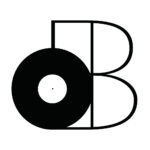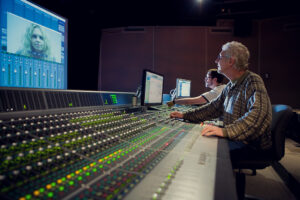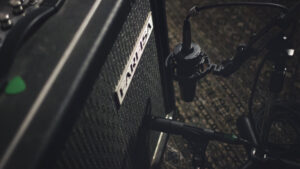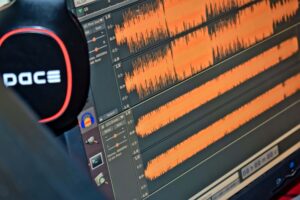If you’re planning to sell your music digitally/physically, then you need UPC/EAN codes. In today’s article, we’ll be learning how to buy UPC/EAN codes for your music. However, your music distribution service may already provide you with that. Is that really the best option though?
If you want to learn how to buy UPC/EAN codes for music, then you’re probably not using music distribution services to get your music released. It’s possible because I just so happen to fall into that category. I only release a few tracks on music streaming services, but the rest are for sync licensing. Do you even need UPC/EAN codes for sync licensing? What about singles? We’ll be answering these questions and so much more, so you might want to consider reading all the way to end! If you’re ready, let’s get started.
- What are UPC/EAN codes used for?
- UPC/EAN codes vs ISRC codes
- Do you need UPC/EAC codes for sync licensing?
- The best way to buy UPC/EAN codes
- Should you get UPC/EAN codes for FREE?
What are UPC/EAN codes used for?
UPC/EAN are used to record the sales of physical and digital products. We’re talking anywhere from canned soup to your next grammy-winning album.
It’s also used for other things like:
- Billboard Charts
- Digital Streaming
- Digital Downloads
In other words, you’ll need to have one of these codes for anything you sell.
You’ll also need TWO of these codes; one for the physical release and one for digital.
That doesn’t apply if you’re only releasing digitally though (which is the case for 99.9% of music these days). If you’re using any kind of music distribution (label or NOT), chances are your music may already be equipped with UPC codes and you may not even know it!
It’s actually required by Apple Music (iTunes) and most other platforms.
LET ME REPEAT… If you’re using music distribution services like LANDR, DistroKid, RouteNote and/or Soundrop you’ll have nothing to worry about. You can stop RIGHT HERE.
UPC/EAN codes vs ISRC codes
If you’re curious though, you may want to know what separates UPC/EAN codes from ISRC codes (which I talk about in this article). It’s as simple as distinguishing the individual goods from the packaging.
I’m talking about the individual tracks and the EP/Album (even the Single).
Technically, the Single is also considered an album. It still required its own vinyl back in the day…
ISRC codes are assigned to the individual tracks. To be more specific, we’re talking about the sound recording, not the musical composition (that’s assigned to ISWC codes). UPC/EAN codes are assigned to the “collection”.
In other words:
- The Single
- The EP
- The Album
- The Music Video
Everytime the packaging changes, the UPC/EAN code changes.
Do you need UPC/EAC codes for sync licensing?
If you’re still reading, it’s probably because you plan on monetizing your music by using means other than music streaming (if not omitting it altogether). Perhaps you’re considering sync licensing.
If that’s the case, do you even need UPC/EAN codes?
I CAN’T guarantee it’ll be the case 100%, but NO for 99.9% of the time.
If you’re working with music libraries, they’ll most likely take care of most (if not all) of the administration needs for your music. Either way, the music will be “synced” and used inside another collection/work which could take the shape of…
- Commercial
- Advertisement
- Trailer
- Video Game
- Film
Those products will most likely require their own UPC/EAN code. The only thing you need to monetize your music for sync licensing is an ISRC code and an ISWC code.
That’s ONLY IF you’re licensing YOUR OWN music.
In all other cases, the music library (especially exclusive) will take care of it.
Do you need UPC/EAN codes for single releases?
I bet you’re asking this question because you realize how expensive UPC/EAN codes can get (they’re about 5$ each). Now I understand why some music distribution services charge so much.
Anyway, you’ll most likely want to have UPC/EAN codes for your single releases.
The music distribution service most likely provides one. If you’re licensing your music, it’ll most likely be taken care and/or not necessary. What if you’re selling your single as vinyls though?
That’s the ONLY exception (and any other physical release).
The company in charge of printing your music onto vinyl, CD, tape, etc… may provide you with UPC/EAN codes as part of the service. Make sure to double-check that.
Otherwise, you’ll most likely need to purchase one individually which we’ll be talking about right now.
The best way to buy UPC/EAN codes
Some pages I researched suggested using the Global Language of Business GS1 website. I think it’s MUCH too complicated and pricey for our needs as artists/musicians.
Instead, I’m going to recommend going with an aggregator like Bar Codes Talk.
It costs about 5$ per UPC/EAN barcode, but you save by purchasing IN BULK.
Remember though, the only reason we’d need to purchase barcodes this way is for physical releases (if your pressing/engraving service doesn’t provide it) or in the odd 0.01% case where you’d need one for music licensing.
However, the resource is there if you need it.
I don’t recommend purchasing one for every Single though, it’s much more cost-effective to group things into larger collections/albums.
Should you get UPC/EAN codes for FREE?
It’s not the method I recommend, but I thought I’d end this article by sharing how you could get FREE UPC/EAN barcodes for your music. I mentioned earlier that music distribution services include this as part of the service, but what if you don’t want to use them?
Well, what about using them just to generate codes?
It might take long depending on the music distributor you use but if you used DistroKid, you could have your barcodes (UPC and ISRC) assigned to your tracks.
You could then simply “pull” them from streaming services and keep your codes.
Sure, it’s true that DistroKid costs 20$ per year… But what about RouteNote?
They charge 15% of your streaming income instead, but you’re not planning on earning revenue there anyway. Right? So it won’t cost you anything but some time.
I still wouldn’t rely on this method (I’m actually not even sure it’s legal, so I’M NOT LIABLE IF YOU CHOSE TO DO THIS). It’s better with DistroKid though, since you’re indirectly paying for the barcodes, but would it even be reliable?
What if you cancelled your subscription, would your codes still work?
That’s why some artists/musicians purchase their codes from aggregators like Bar Codes Talk regardless. It provides the most certainty since it’s a one-time purchase and you have a receipt for the purchase of the UPC/EAN barcode(s).
I just wanted to make you reflect on the importance of providing your music with the best.
You know better than anyone else what you need. You now know how to completely “cheap out” on yourself gangsta-style or to invest in yourself like the musical entrepreneurs at Decibel Peak Academy.
If you’re interested in discussing, you can either leave us a comment or schedule a 1-on-1 consultation with me to get more personalized advice. I hope you found this article useful.
Sources
https://www.bbb.org/us/fl/brooksville/profile/bar-coding/bar-codes-talk-llc-0653-90079886#bbbseal









4 thoughts on “How To Buy UPC/EAN Codes For Music”
Great explanation. Thank you very much!
Hey Daniel, my pleasure. Thanks for reading!
– Stefan
I have been using DistroKid for years, releasing both albums and singles and have not had any issues with UPC. Now, I am starting to upload to music libraries for sync licensing and now I am confused if I need a UPC. I know I will create the ISRC and enter into my PRO database; so, I don’t know what else I need to do.
Hello New Music Maker,
You don’t need ISRC and UPC codes for sync licensing.
ISRC and UPC codes are automatically created by DistroKid, so just check your tracks’ description and it’ll be there.
The only thing you ABSOLUTELY need for sync licensing is your ISWC code. That’s how performance royalties are tracked.
ISRC is associated with the musical recording, UPC with the album and the ISWC with the musical work.
Remember, you’re not selling albums (or streaming) your music with sync licensing, it counts as a performance.
The ISRC would MAYBE apply if you were syncing your music to something like a video game, but even then… I’m not 100% sure.
I hope that helps, let me know if you have any other questions. Thanks for stopping by!
– Stefan